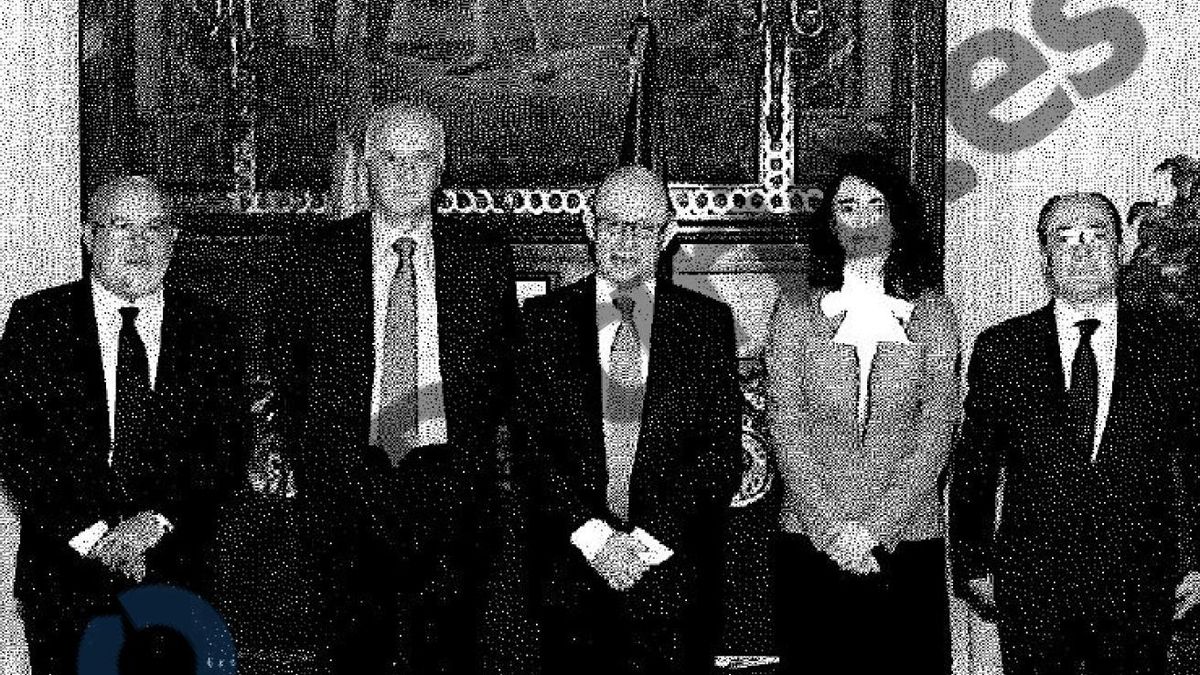The Association of Industrial and Medicinal Gases Manufacturers (Afgim) paid in March 2014 the amount of 270,000 euros plus VAT to the Office of Economic Team in exchange for a 12 -page report, half of which were prepared with the information provided by the employer itself. In theory, that study should serve to prove before the Ministry of Finance the “discrimination” that the sector would suffer if a tax reduction of up to 85% was not applied in the Special Electricity Tax, as ended up. But the Mossos consider that what AFGIM actually paid was the influence capacity of the office founded by the then Minister of Finance, Cristobal Montoro.
This is one of the central points of the instruction made by a court of Tarragona, by the hand of the Mossos d'Esquadra, which suggest that the office linked to Montoro would have charged large sums not in exchange for its advisory services, but to guarantee legislative modifications in favor of pressure groups or companies that passed through cash.
In the case of the employer Gasista, this association had been trying to promote a legal reform that meant a considerable tax reform. Specifically, they wanted them to be considered companies of high energy consumption and that, those whose electrical expenditure meant more than 50% of the cost of the product, could enjoy an exemption of 85% in the Special Electricity Tax. According to its own calculations, it would be saving of about 4.7 million euros per year.
As reflected in the summary of the case, from Afgim they had promoted meetings with “Catalan deputies” and also with the then Minister of the Generalitat company, Felip Puig, of CiU. But this road had not paid the expected fruits, so they chose to go to economic team.
“The most direct route, as always, is to pay”
According to a mail exchanged between two executives of Masser Iberian of Gas SA, paying the consultant founded by Montoro would be a definitive solution to achieve the fiscal reduction they yearned for. “The most direct route, as always, is to pay this economic team that has direct contact with Finance Minister Cristóbal Montoro. If you need more details, do not hesitate to contact,” they wrote in a message that the Mossos found.
It is then that the offer of economic team appears, in December 2013, which after several meetings ends up materializing in the aforementioned 12 -page report in which they end up proposing the modification of the Electricity Tax and Law 16/2013, as the businessmen pursued. The Mossos highlight the low quality of the “justifying note”, ensuring that half of the report, in which an analysis of comparative law is made, was contributed by the clients themselves.
The payment of 270,000 euros is broken down as follows: 90,000 euros correspond to the fixed part and 180,000 more than success feethat is, if the objective is achieved in the first year, as finally happened. However, payments are distributed among the various companies that are part of the association, which generates in the researchers even more doubts that they were being paid for a mere economic study.
In addition, the Judicial Police compares the report made by the Office linked to the Minister with another that, by the same dates, made the consultant Ernst & Young, in his case corresponding to an economic study on the energy costs in the sector and the effects of applying the fiscal reduction they proposed.
“While E & and charged € 37,400.00 (VAT included), for the writing of a specific report for each of the AFGIM companies, plus a general one that collected the aggregate data of each of them, EE billed € 270,000.00 (separate VAT), for the drafting of a single 12 -page report (half of which were presumably written by the contracting association, the AFGIM), plagued with normative appointments, and whose conclusions are still simple opinions, ”the researchers highlight.
This finding, together with the data collected, leads the Mossos to reinforce the hypothesis that the hiring of economic team “obeyed the capacity to influence the Ministry of Finance that the partners of this office had, due to the public positions they had previously occupied and the obvious relationship they had with the minister.”

This access to the minister and the high positions of the Ministry of Finance would be reflected below. On March 4, four of the most prominent entrepreneurs in the sector meet with Cristóbal Montoro in the Ministry's offices, where the two reports, that of Economic team and that of Ernst & Young. Subsequently, on April 21, they will meet again with the Secretary of State for Finance, Miguel Ferre Navarrete, now charged.
Those meetings would fruit in a legislative reform in the form of the bill drafted by the Ministry, which was registered in July of that same year and which ended up approved in November. For December, the Government had already approved the regulation that guaranteed that these companies were covered by the tax exemption.






